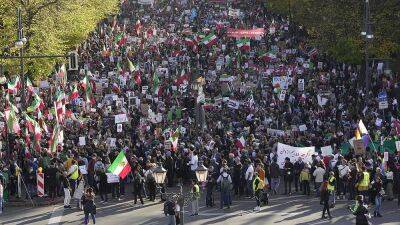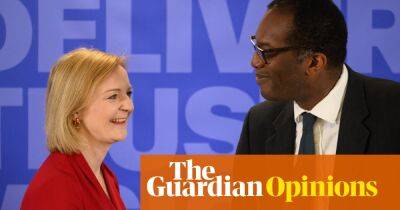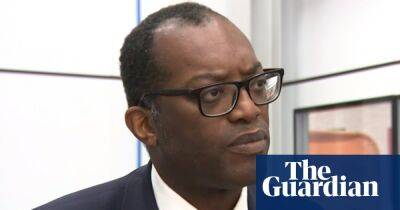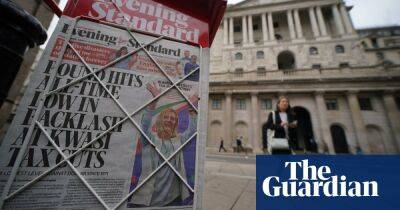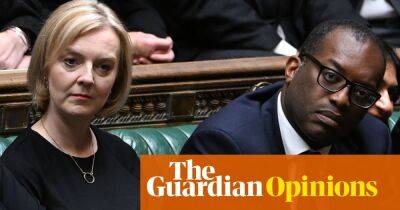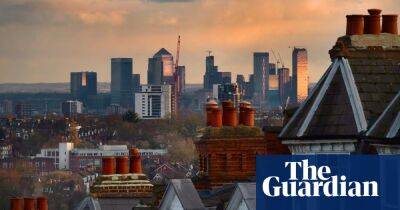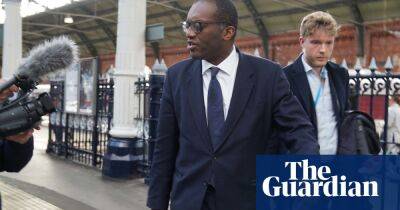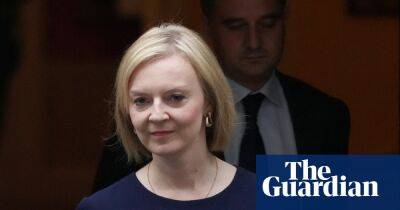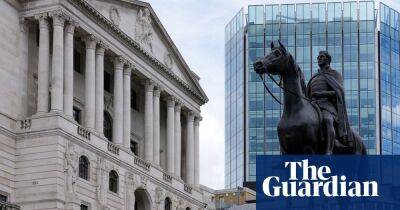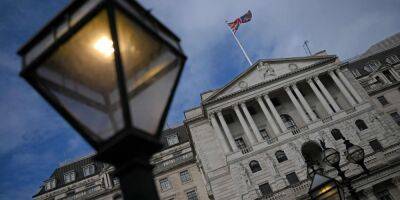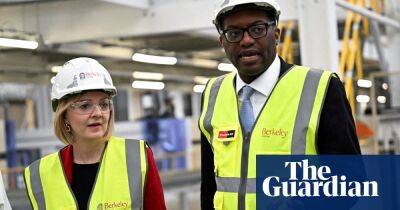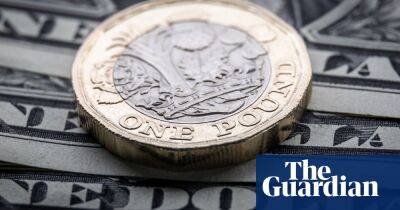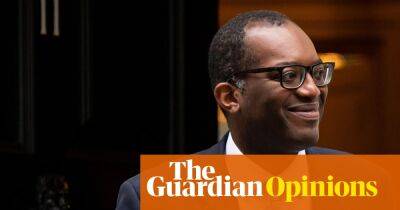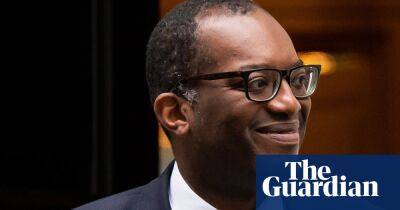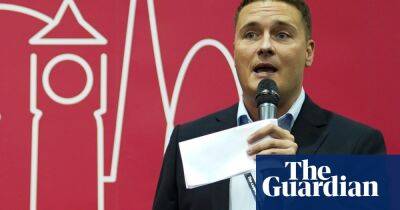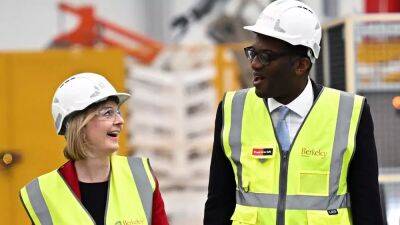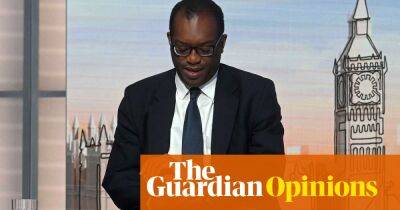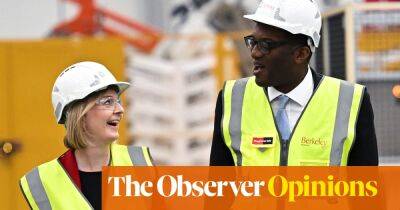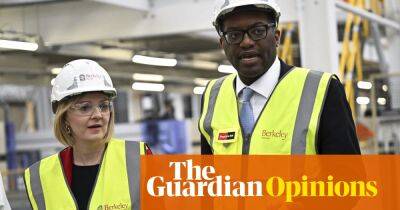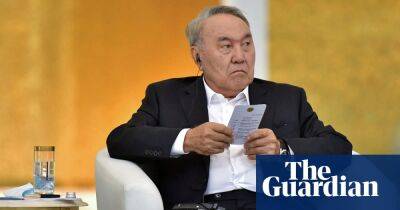The Guardian view on the financial crisis: a meltdown made in Downing Street
Politicians and journalists scatter the word “crisis” like salt over hot chips, but every now and then the term really applies. The Bank of England’s emergency intervention in financial markets on Wednesday qualifies as a crisis – for the Bank, the government and the public. This is a crisis made in Downing Street, and it is not over yet.
Just last Friday, Kwasi Kwarteng unveiled what he refused to call a mini-budget. It did in fact rank as one of the most significant budgets in 50 years, with £45bn in tax cuts. These giveaways had not been demanded by vast swathes of voters. Many businesses and economists thought them unnecessary, even wasteful. They came after an energy support package worth £150bn over two years, and while the UK is having to borrow ever more money to pay for imported fuel, food and manufactured goods. Yet the chancellor had not prepared investors for all this spending, had decreed the Office for Budget Responsibility should not check his sums, and also pushed out Tom Scholar, the Treasury’s top civil servant. Along with Liz Truss, Mr Kwarteng had spent months decrying the Treasury’s “abacus economics” and also demanding a shakeup at the Bank of England.
Faced with all this institutional instability and slipshod policy, markets reacted incredibly badly. The pound has collapsed and bond markets have all but frozen up. The free-market thinktanks and media outriders who helped write the budget now look less like the experts on capitalism they claimed to be, and more like extremist cabals on a different planet from voters and investors. Even the IMF, not known for its concern with either growth or tackling inequality, laid into the chancellor’s plans. The IMF is quite happy to slap down policymakers in
Read more on theguardian.com
